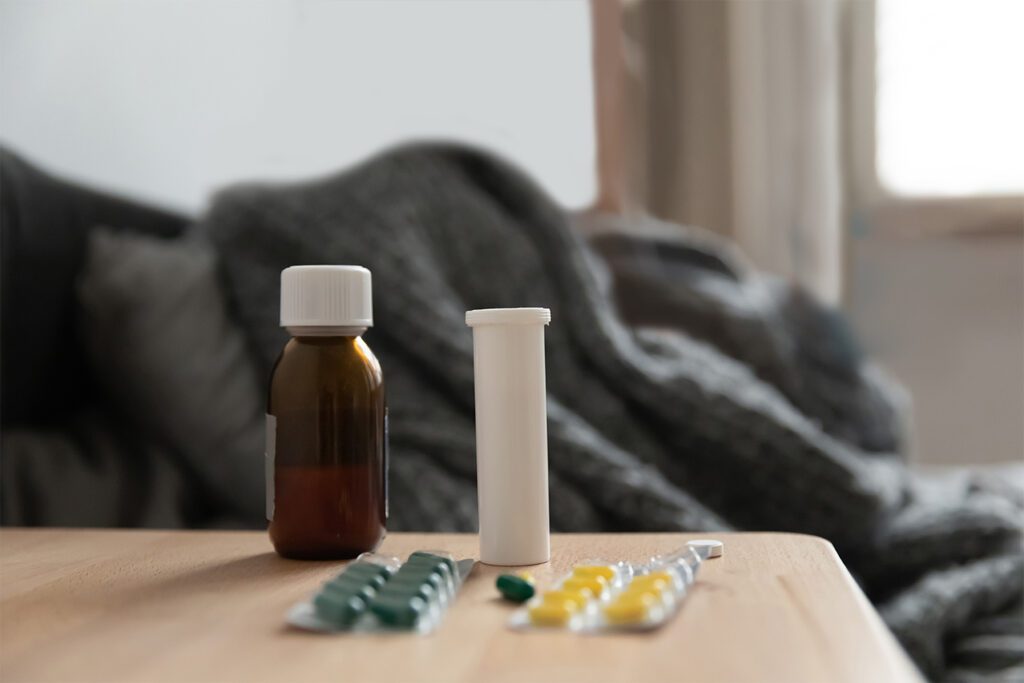Many of us camp with health conditions or with a significant other that has a health condition. It is entirely understandable that we might worry a little when we hit the road for an extended length of time or to parts unknown. What if I have symptoms? Will I be able to find healthcare if necessary? Will emergency services be available close by if I need an ambulance? Many seniors travel every year with chronic conditions, but it shouldn’t prevent us from enjoying the camping experience. Underlying health conditions such as heart disease, lung disease, hypertension, or diabetes often require awareness and monitoring of symptoms as we travel. Many of us take daily medication also. A safe and healthy trip is achievable with knowledge and a little extra preparation.
- What if I have symptoms? Chest pain, shortness of breath, lightheadedness, dizziness, or any new or concerning symptoms should be taken seriously and dealt with immediately – call 911.
- Will I be able to find healthcare if necessary? Years ago, my husband developed frightening symptoms while traveling. He was suffering from a rare and severe reaction to one of his medications. Thankfully, we were in a place we knew well and were familiar with the area’s local community hospital. We were still on the road and only a few miles from the hospital. We went immediately to the emergency room. They couldn’t make an exact diagnosis but treated all of his symptoms appropriately. When they stabilized and discharged him, they told us to return home immediately. We did. Now I consistently research online the hospital closest to our planned destination. A little bit of extra planning gives me peace of mind.
- Will emergency services be available close by if I need an ambulance? I can’t stress strongly enough the importance of calling 911 to get appropriate medical assistance to evaluate and treat an emergency. You will find this repeated over and over in future blog posts. Be familiar with your area and realize that ambulance response times will vary.
Traveling and camping should be fun, relaxing, and rewarding, but it can also be stressful when traveling with medical conditions. So before you go, I recommend you follow these four basic suggestions for health and wellness when planning your trip.
1. Keep up with doctor visits.
Maintain your health all year long by keeping up with routine and recommended doctor visits. Make sure you are following up with both your primary care doctor and any specialty doctor you see. Let your physicians know that you travel throughout the year or will be traveling soon so that you have an opportunity to discuss any health concerns before your trip. Your doctor might have specific concerns about an underlying condition and give you special instructions if your trip is a long one. Ask if your prescriptions renewals are up-to-date and ask for a copy of your office visit for your records. A copy of your office visit is good to have as they generally contain a list of your medical conditions and any doctor’s recommendations for your health. We don’t travel typically with our office records, but they are good to have if you are heading to an RV park in a warmer climate for a few months, and you can tuck them into your first aid kit if you want.
2. Pack your medications
Even though taking medication is part of our everyday routine to stay healthy, it’s an item that inadvertently gets left at home. On one trip, I forgot my pills at home. Luckily the town we were near had the same pharmacy as where I got mine filled. The pharmacist was able to look up my prescription and give me enough medication for our trip. So now we put our medicine on the kitchen counter days in advance so that they are sure to be packed. It would help if you also did that with those taken only when needed, such as an epi-pen. When traveling, take all medications as directed. Travel with the original pill bottles with the prescription and directions listed on the label, even if you fill a daily pill organizer. It is essential to make sure your prescriptions are up to date, and you have enough for the duration of your trip.
3. Have your medical information available
When planning your trip, it’s good to carry your essential medical information with you, especially if you are traveling for an extended time. Note your information on something simple, easy to carry, and easily accessible. A small card to keep in your wallet and a copy in your first aid kit works well. The cards need only five necessities for quick reference.
- List of current medical conditions
- Allergies
- Medications and dosages
- Physician name and number
- Insurance Info
A small card is not practical if you have several medical conditions or many medications to list. Adapt this recommendation to your needs. Also important to note with your medical information is if you have any implanted medical device, such as a pacemaker or internal defibrillator. Include the type of medical device, the manufacturer, and the year the device was implanted.
4. Be Prepared for an Emergency
Unexpected medical issues or injuries can happen to anyone while camping. Understanding and preparing for unforeseen emergencies can help you manage them safely until help arrives.
- Have a well-stocked first-aid kit
- Research the area you will be staying
- Let family or friends know your plans and how to reach you.
- Consider a satellite phone for isolated areas with uncertain cell phone reception.
Although traveling with chronic medical conditions requires a little extra planning, there is no need for it to prevent an enjoyable camping experience. See our first aid blog for additional suggestions. As always, make sure you speak with your doctor to discuss any concerns or recommendations before you leave.

